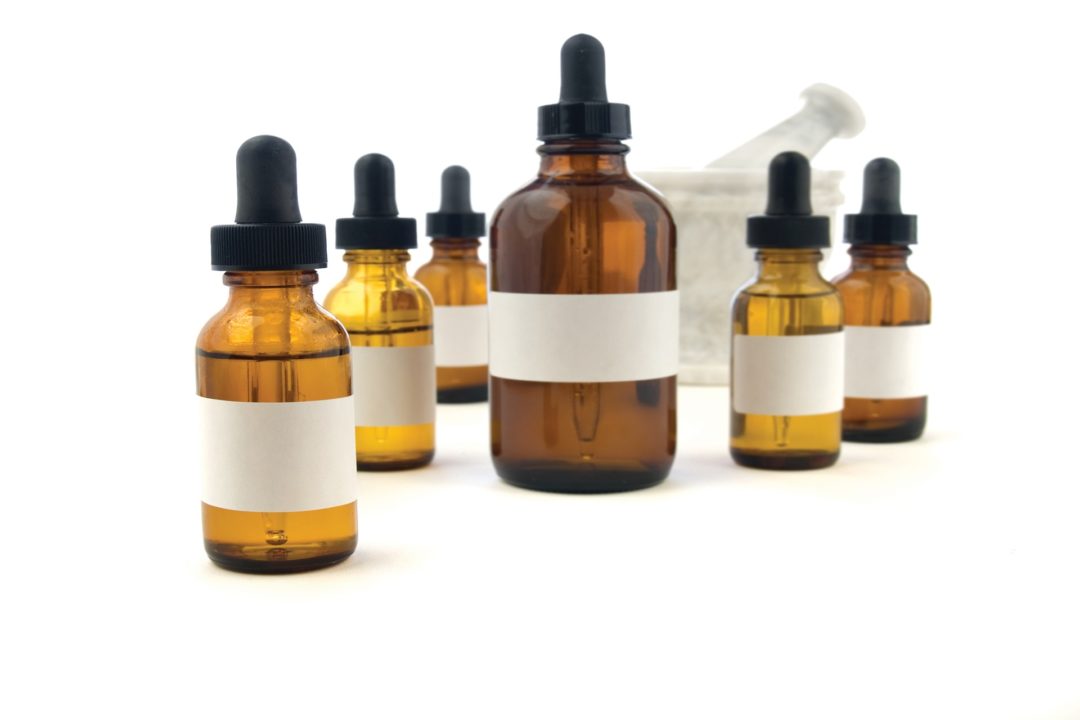Jim Holbrook, CEO, Daymon states, “We are seeing that retailers with distinctive, one-of-a-kind Private Brands will survive and thrive, while those with national brand equivalents will struggle as competitive pressures mount” (1).
InWholeFoods Magazine’sannual Retailer Survey, we found that nearly half of all respondents (47%) carry a private label supplement line, with anywhere from fewer than 25 stock-keeping-units (SKUs), to more than 200 SKUs. Several respondents said they carried 300 private label SKUs, two offered 500 SKUs, and one store had 1,000 private label SKUs (2).
Many companies now are offering private label services to remain competitive in the market. NOW Foods, Bloomingdale, IL, began offering private label 25 years ago when customers inquired about having their own store brand. Today, they offer a turn-key program to help retailers launch their own brand, says Barb Honiotes, NOW private label sales supervisor. NOW’s staff offers guidance on new products and package design. “Whichever option they choose, the end result will be labels that look professional, and meet regulatory requirements,” says Honiotes.
Customer loyaltyis extremely important for independent retailers. Honiotes says private label allows retailers to brand their store’s image, which is a proven way to attract and keep customers. “As patrons become used to a particular store brand, it reinforces their loyalty to that store, and they can’t get it anywhere else,” says Honiotes. “Combined with great customer service, a store brand is the most effective way to keep the customers coming back.” She says this is especially important in the age of Amazon, where private label is skyrocketing. The company has made it easy for retailers to sell their brands on its site; and now even Amazon has its own private label brands. “With so many well-known brands that are available everywhere, having your own brand creates consumer loyalty,” says Honiotes.
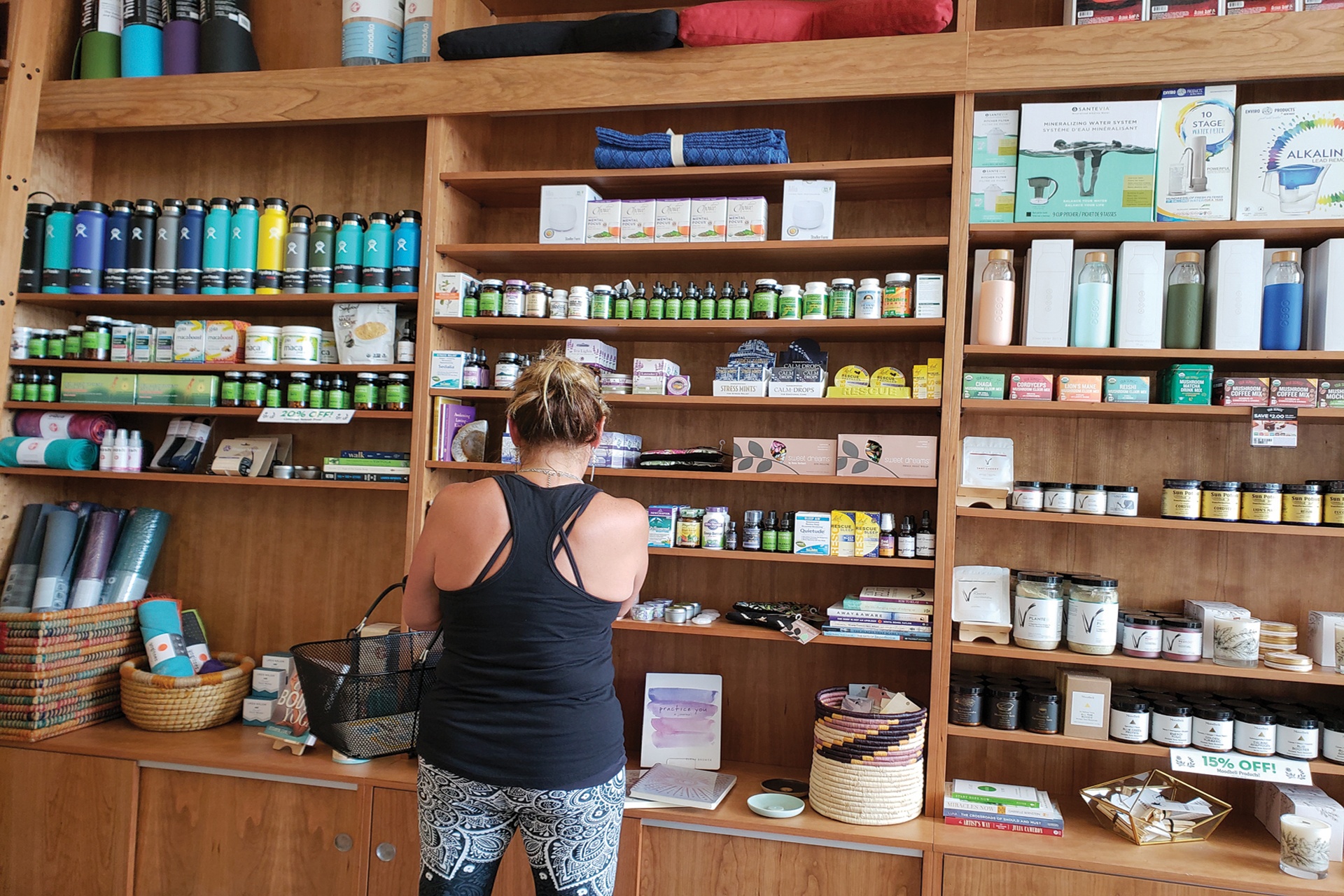
Zachary Milligan-Pate, co-director of purchasing & store manager, Cambridge Naturals, Cambridge MA, says private label is an integral part of their business and is a key to their success. Cambridge Naturals stocks over 600 SKUs of private label products including essential oils, vitamins, herbal supplements, and dried fruit/nuts/seeds and works closely with four private label suppliers. “I have personally visited two of our four private-labelers in the past 18 months and plan more trips in the near future so that I can experience their operations first hand,” says Milligan-Pate, “That kind of firsthand knowledge and experience really makes our private label stand out for our customers.”
Milligan-Pate agrees that private label creates a trust and loyalty in consumers. “It is your brand and can only be purchased from your store, so there is a layer of protection there from cross shopping/e-retailers and there is an incentive for customers to buy a product from you repeatedly since you are the sole reseller,” he explains.
Although there are many advantages to retailers carrying private label, there are also risks present. By having its own line, a retailer is tying their name to the product. Of course this can create familiarity and trust, but it could also pose a problem if quality is sub-par. “If a customer has an allergic reaction to a product, if something is mispackaged, etc., your customer will hold you that much more accountable than they would a name brand,” explains Milligan-Pate. This is why he works so closely with his suppliers and recommends others do the same. Quality should be a primary focus when choosing a supplier.
Cambridge promotes their private label products “as good, if not better” than name brand products. “A lot of name brand products are even manufactured by the exact same private label companies that we use!”
What is Amazon’s potential role in the private label business?“Currently Amazon is only offering a small amount of Amazon private label supplements but I wouldn’t be surprised if they had an expansive and innovative private label supplements line in the next 2-3 years,” says Milligan-Pate. The outcome of Amazon’s expansion could go either way; it could pose a threat to retailers because of the online accessibility (especially to private brand supplements), or emphasize the importance of small-business customer service care and knowledge.
Trust Transparency Consulting reported that Amazon first entered the dietary supplement market in February of 2017 with four products and as of August 2018, have grown the Elements line to 30 SKUs, resulting in a 750% increase. Ten products were added between the last week of July and the first week of August (3). Although it may be recognized less for its supplements and more for grocery and other products, Amazon’s supplement private label business continues to rapidly grow.
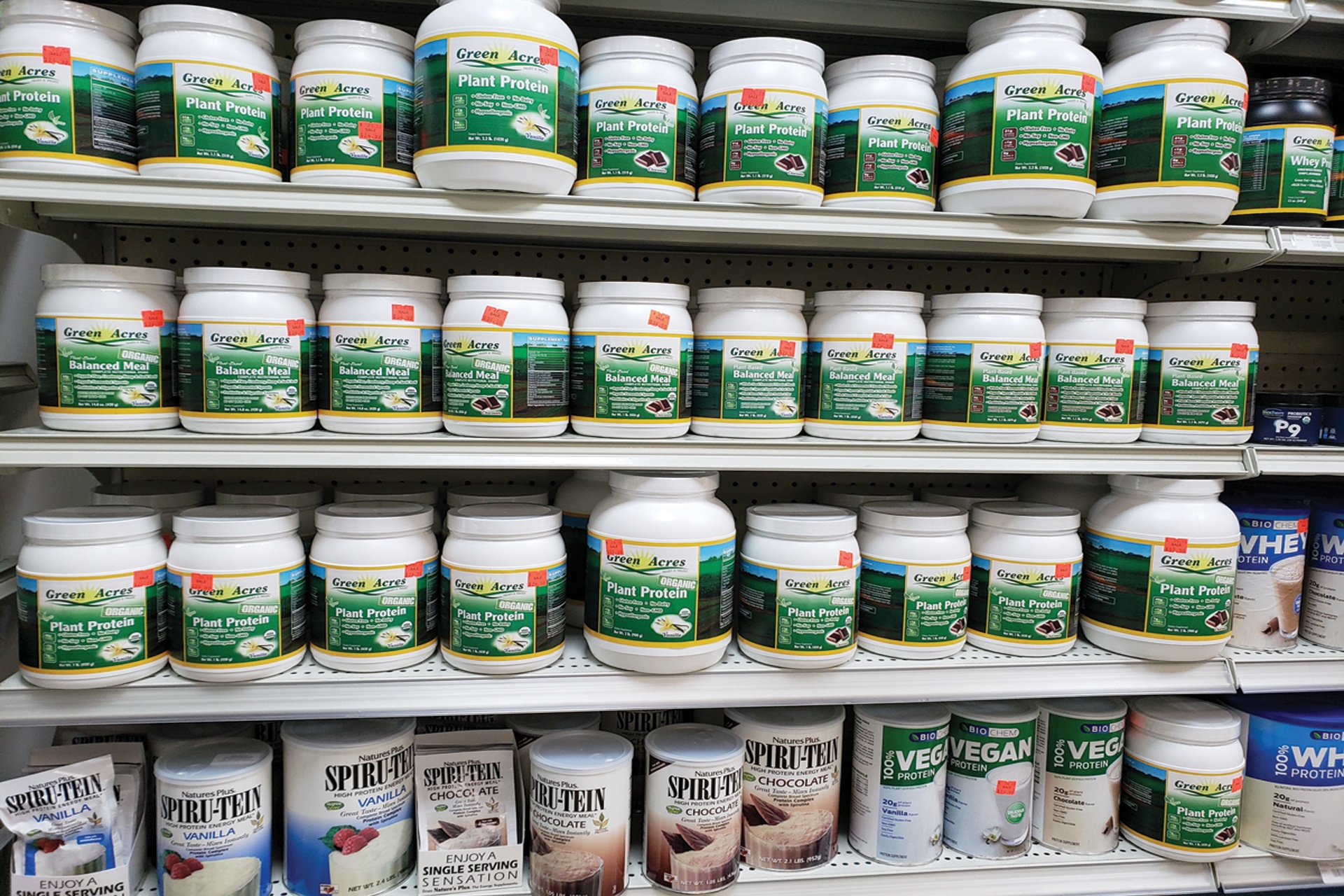
Besides supplements, Amazon has launched its own private label brand of dog food, Wag, and is expanding in private brand grocery products. They are also offering clothing, jewelry and shoe brands accounting for 86% of its private label brands. Additionally, they have moved into garden/outdoor, grocery, health/household and home/kitchen. The Cadent Consulting Group “predicts that Amazon, including its Whole Foods 365 Everyday Value brand, with an estimated $2 billion in sales added to Amazon’s $2 billion grocery private label sales in 2017, will grow to $20 billion by 2027” (4).
“Amazon is seeking, as it always does, to dominate,” says Annie Eng, CEO, HP Ingredients, Bradenton, FL. “There is no other larger sales and distributor organization in the world.” She raises an interesting point that Millennials still enjoy in-store experiences. Some retailers have added interactive kiosks and other modern elements to cater to that audience. Eng says, “So if you renovate your store to add more memorable experiences – along with unveiling or renovating your vanity brand – those efforts will synergize to make your store a hot spot.” Although Amazon is growing in the private label market, it is still very possible for independent retailers to compete, especially if they keep these advantages in mind.
Karl S. Halpert, President & CEO of Private Label Select, Ranchos de Taos, NM, has a contrasting view on Amazon’s role in private brands. He believes that Amazon offers a platform for private label brands to gain visibility and get on the market quickly. He says this way, brands can test market ideas/products and gain data and feedback at very fast rates that were previously unheard of.
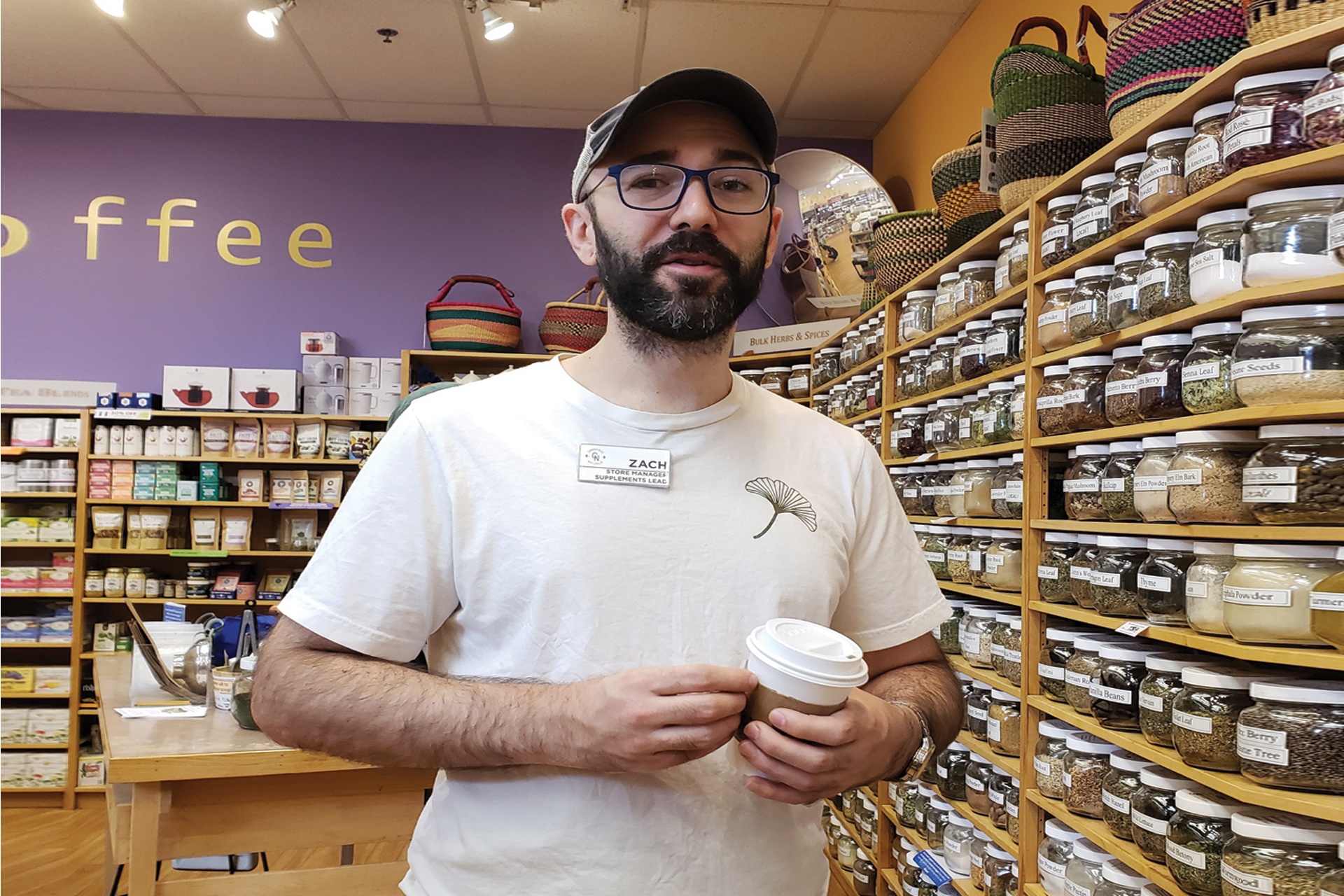
Recently, Amazon has been promoting its own private label products on competitors’ pages (5). At the bottom of various product pages, a link is present titled, “Similar item from Our Brands” that directs users to Amazon’s private label products. Sellers have noticed this appearing, while Amazon has declined to comment (5). This adds to the tensions between Amazon and other brands and many disagree on whether this is fair game or not. The CNBC report cited findings from TJI Research that Amazon’s private-label business will generate $7.5 billion in sales in 2018 and $25 billion by 2022 (5).
What other products are best suited for private label?Eng from HP Ingredients says go-to products typically cater to a specific condition and have a lot of backup research to accompany the product. She gives some examples of their products that are relevant for large groups of people, “LJ100 for men’s health, sports/fitness and lean body mass/energy (for men and women); Bergamonte for cardiovascular wellness; ParActin for healthy inflammation regulation, joint health, bone support and immune support; and MaquiCare, for antioxidant and immune support, healthy inflammation regulation, and healthy blood sugar support.”
When you hear about private label you most likely think of supplements. However, grocery has become a trending topic in this market. A new report, “Consumer Attitudes Toward Private Label” by Magid reveals that Trader Joe’s is a lead contender in the grocery private label market. Some 56% of consumers would purchase private label grocery products from the store because they are perceived as unique, trendy and ahead of national brands (6). This is another area for retailers to consider private label practice other than just the supplement aisle.
Natural Grocers by Vitamin Cottage is stepping up its private label brand with 35 new products spanning 10 categories (7). The line will be expanded to 50 products that are pantry staples like breads, oils and frozen items. The company is doing this at a perfect time, while private label is growing at three times the rate of name brands (7). Costco, Kroger and Aldi have all expanded their private label brands. Other retailers are likely to follow suit in the grocery category.
Another category for private label brands is natural personal care and cosmetics. This is exactly what Private Label Select does—it makes deodorants, sunscreens and lotions, lip balms, lip tints and glosses, oils, diaper creams and other products to deliver finished goods to retailers. Halpert agrees that private label products strengthen customer loyalty, and positions the retailer as extremely knowledgeable in the products it offers. He also says they act as a marketing tool as customers spread the word on products they enjoy. “Margins tend to be higher than the branded lines, which means the retailer can offer its store brand products at more competitive pricing,” shares Halpert.
Where to Get Started?Beginning a private label brand may seem like a daunting task. Here are some tips on where to get started if thinking of launching your own line.
Honiotes suggests starting off with a selection that is the right size for your store and planning how to merchandise the products. “The retailer should look at their top sellers in national brands and begin with their own version of those products, then expand the line when the consumers begin to seek their store brand specifically.” Honiotes says NOW can help advise on top sellers, without expensive market research.
Decide which areas you want to become an expert in before taking on a line, says Halpert. For example, if wanting to start a supplement line, customers will expect staff to have extensive knowledge on the particular supplement and their product. This will set the small retailer apart from larger chains. Both the retailer and staff have to be prepared before taking on private label.
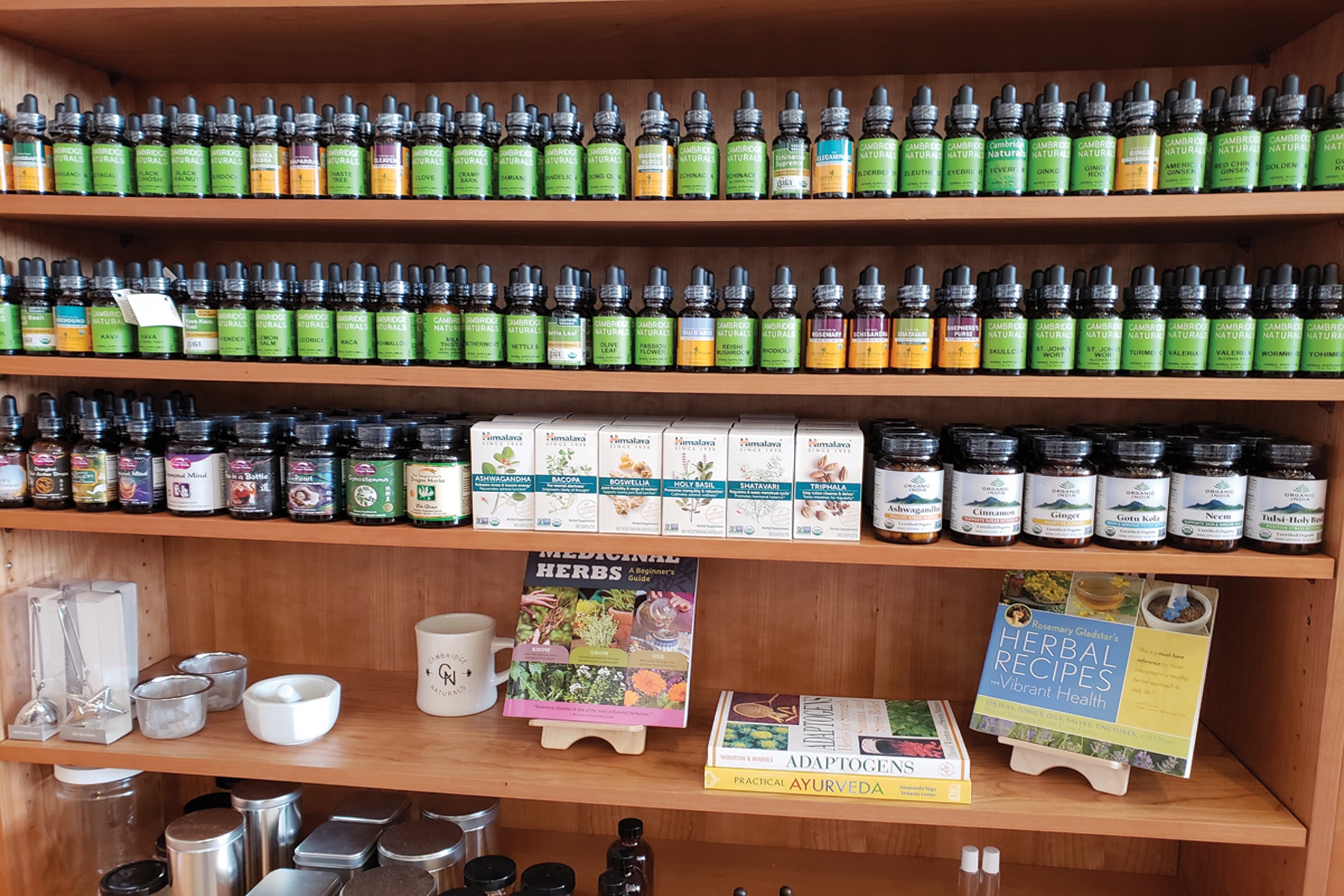
Another place to start is to see where your store has an abundance of products. If you have many brands of one particular supplement or product, you can afford to switch it up with your own brand. However, it is also important to keep a balance of your own products with other brands, as to not tarnish relationships with other companies.
Merchandising, pricing and packaging. Honiotes suggests prominently merchandising store brands and offering introductory discounts to the store brand. “Some retailers want their own SKUs to go head-to-head with a national brand, so position those SKUs directly next to the other brand,” she says. You don’t want to price competitive products too low though, to avoid perception of a lower quality product to consumers.
Milligan-Pate says depending on the positioning of your private label in your lineup, it may be your “premium” product or “discount” product, or a mix of both; this can change your approach significantly.
Halpert says products that can be turned over quickly could be placed near checkout and can be very effective, for example lip balms or bottled water.
If you are considering customizing your packaging quite a bit, there is a lot to consider in terms of the packaging and labels. Consider your logo, color choices and a unique design that makes your packaging stand out against others. Green Acres Health Food Store, Piscataway Township, NJ has green labels so customers can easily identify the store brand. Cambridge Naturals, Cambridge, MA, also has bright green labels for its store brand.
Green Acres has a section near checkout dedicated to some of its own branded products, but elsewhere in the store they are mixed in with other brands, especially in supplements. In the grocery section they have a clear section for their brand. Cambridge Naturals also mixes in its products with other brands, and they have a section with dozens of essential oils/herbs that are their brand.
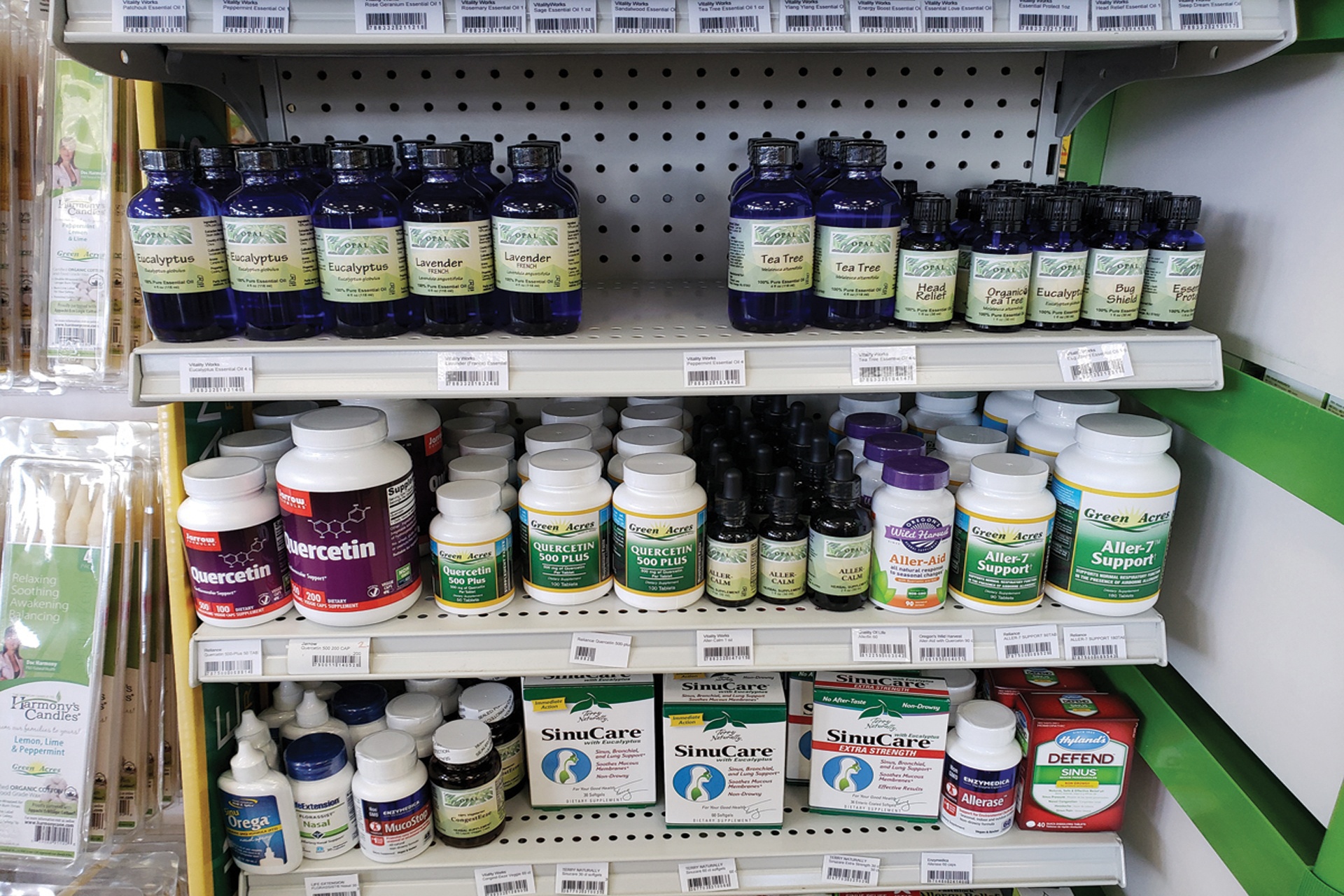
Ensuring Quality.“When evaluating private label suppliers, make sure the quality is good enough to carry your store’s name, and ask hard questions,” says Honiotes. NOW is GMP (Good Manufacturing Practices)-certified and “A-rated” by the Natural Products Association (NPA), so make sure to use a supplier with a good standing. It is also important that incoming raw materials and ingredients are tested for identity, purity, potency and composition, and that the finished product is also tested.
Milligan-Pate stresses the importance of quality and says, “Use your network – ask stores you know and trust who they use for their private label – what their challenges have been – what their suggestions would be.” He suggests seeing who can meet your specific needs while ensuring quality. He recommends being strategic with choices and to stock name brand products that are meaningful and fill a need, since stocking private label may limit brand names.
It is important to ask questions to any potential suppliers. Be sure they are transparent and you know where raw materials are coming from, their certifications, if they are involved in organizations like INFRA or the NPA, their testing process, minimum purchasing requirements, insurance policies, etc. Also tying into Milligan-Pate’s point of establishing a close working relationship with suppliers, it is a good idea to tour facilities.
Eng says the process begins with a detailed assessment of your market. “We have heard from retailers that some feel intimidated, that there may be too high minimums, especially when they feel the need to start and see how it goes before committing to more,” she states. HP meets retailers’ needs by offering low minimums and clinically proven ingredients. This allows retailers to select the right product, and amount for their individual needs. HP then drops the store’s logo on FDA-compliant labels and ships to the store along with marketing support materials. “Private labeling, at least with us, helps fulfill the on-site experience that links the retailer in the customer’s minds, thus increasing store brand loyalty.”
Eng adds that this is an exciting time to begin a private label practice. She says that customers want more than just walking up and down aisles. This is an opportunity to make it fun and something they cannot get online or dropped on their doorstep.
“The choice of a manufacturing partner is as important as the products themselves,” says Halpert, “It truly is a partnership in the sense that the more it develops its private label program, the more the sales will benefit each party.”
With private label, training staff to have an above average knowledge of products and the industry is crucial. Milligan-Pate adds the importance of curating your product selection to serve your market, “Knowledge, service, selection, and experience.”WF
References:
1. Daymon, “Daymon Debuts Vanguard Private Brand Intelligence Report”, https://www.daymon.com/press-releases/daymon-debuts-vanguard-private-brand-intelligence-report/ 2. Jacobowitz, Jay and Petersen, Laurie, “2018 40th Annual Natural Retailer Survey Overview,” https://wholefoodsmagazine.com/supplements/features-supplements/2018-40th-annual-retailer-survey-overview/ 3. WholeFoods Magazine Contributor, "Amazon Elements Portfolio Explosion Is Transparent," https://wholefoodsmagazine.com/news/main-news/amazon-elements-portfolio-explosion-is-transparent/ 4. Danziger, Pamela N., “How Amazon Plans to Dominate the Private Label Market,” https://www.forbes.com/sites/pamdanziger/2018/05/06/how-amazon-plans-to-dominate-the-private-label-market/#26b53dd372d9 5. Kim, Eugene, “Amazon has been promoting its own products at the bottom of competitors' listings,” https://www.cnbc.com/2018/10/02/amazon-is-testing-a-new-feature-that-promotes-its-private-label-brands-inside-a-competitors-product-listing.html
6. Progressive Grocer, "Shoppers More Interested in Trader Joe's Private Label Than Any Other Retailers,'" https://progressivegrocer.com/shoppers-more-interested-trader-joes-private-label-any-other-retailers 7. Wells, Jeff, “Natural Grocers goes all in on private label,” https://www.grocerydive.com/news/natural-grocers-goes-all-in-on-private-label/538510/ 8. CB Insights, "Private Labels Rising: How Retailer’s Own Products Are Taking Off And Transforming The CPG Industry," https://www.cbinsights.com/research/private-labels-disrupt-cpg-retail/?utm_source=CB+Insights+Newsletter&utm_campaign=f016bb1868-Top_Research_Briefs_09_22_2018&utm_medium=email&utm_term=0_9dc0513989-f016bb1868-90503358

